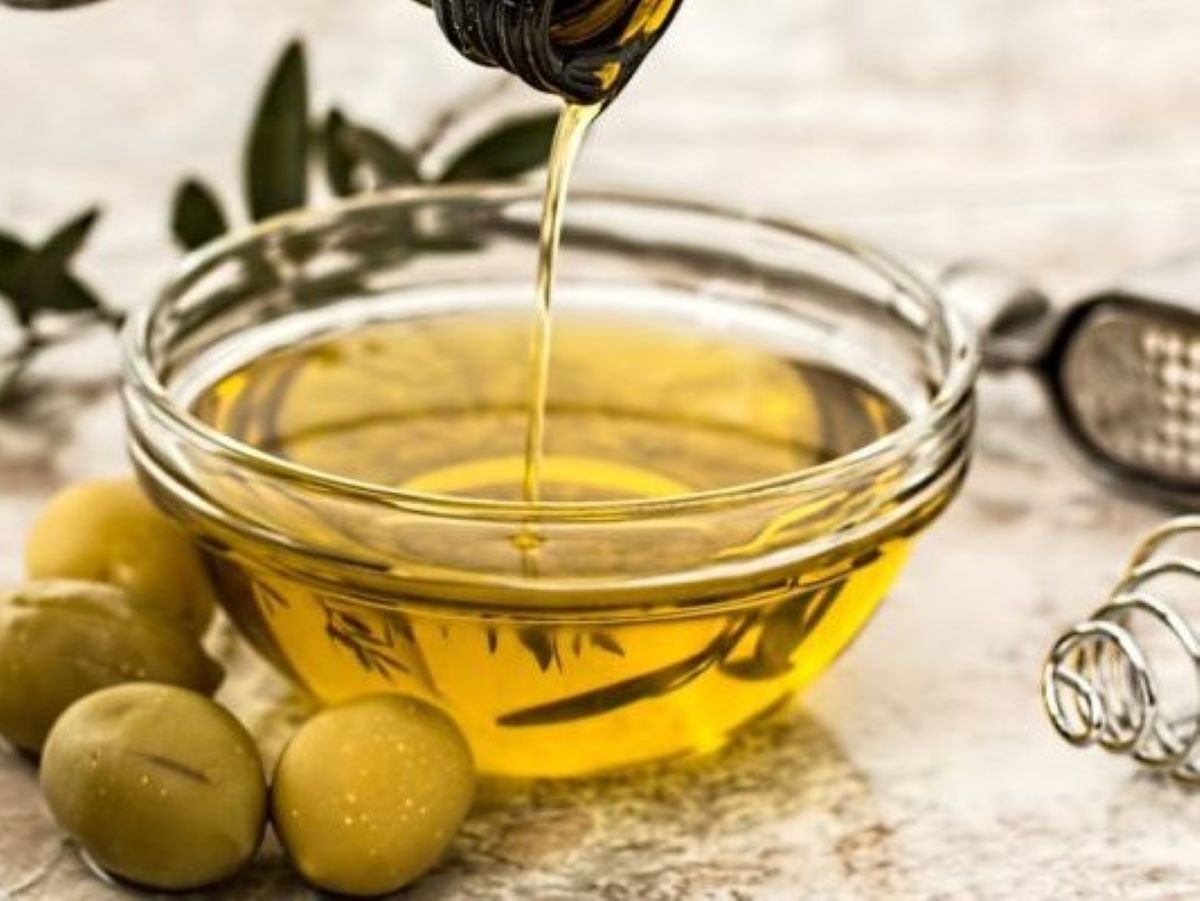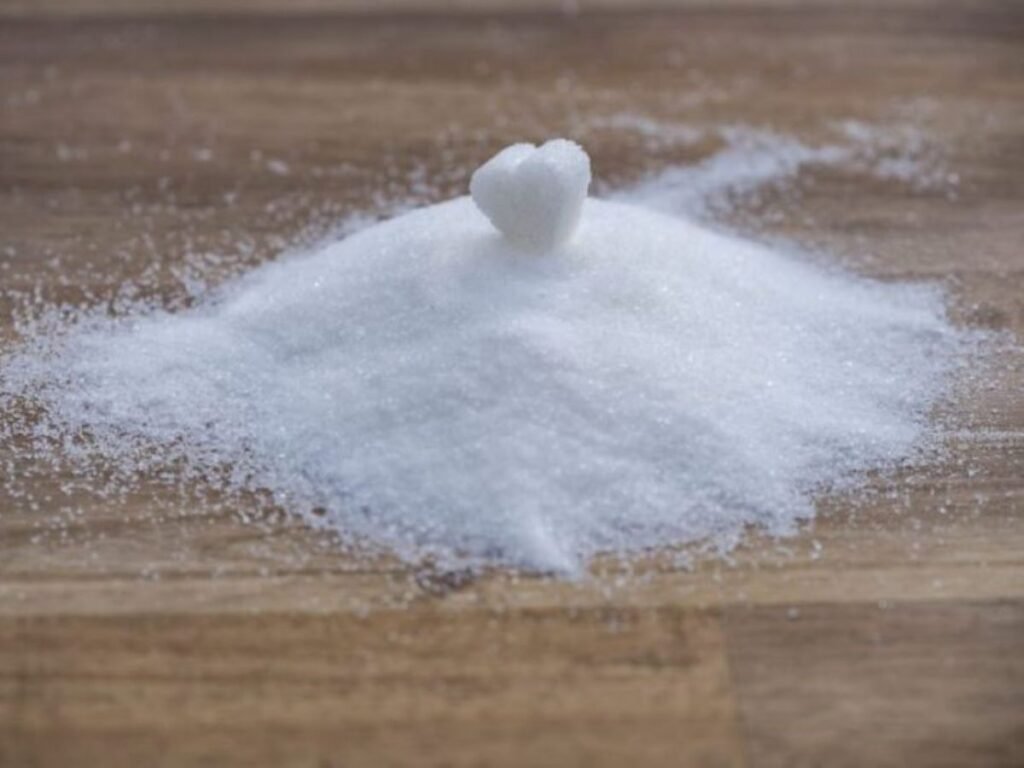This post may contain affiliate links. Please read my disclaimer for more information.
I’ve been cooking ever since I was about twelve years old. It was the expectation for a young girl in my Caribbean culture to learn about food and how to cook it. It was a useful chore that fed my family each evening on school days. Thankfully Mom took over on the weekends! One of the main ingredients that I learned about in those early days was how to use various types of cooking oil.
I had access to the usual suspects like corn oil, soybean oil, lard, ghee, and coconut oil. Each had its own viscosity, flavor profile, smoke point, etc. and I soon learned which oil to use depending on what type of food or cuisine I was making. So what is the best cooking oil? Well, there isn’t just one that fits the bill for everything, and whenever I evaluate an ingredient, I look for quality, nutrition profile, versatility, and affordability. It is with this in mind that I present what I believe to be the best cooking oils available today.
MCT Coconut Oil
I only just learned about MCT coconut oil a few months ago while I was on the Keto diet. I knew about coconut oil but not about its chemistry and other special qualities. So what is MCT coconut oil? The MCT stands for Medium Chain Triglycerides which are fatty acids that can pass directly from the gastric tract into the bloodstream where our bodies can use it for energy.
MCT oil is a preferred source of energy for Keto dieters because while it provides the body with sustained energy and curbs hunger, it does not itself require energy for absorption, use, or storage. Another medical benefit of MCT oil is that it is good for patients who may have problems with nutrient absorption (malnutrition, malabsorption) or who have difficulty metabolizing fatty acids in their diets. Some studies show that it may be beneficial for epileptics following the Keto diet.
MCT oil is odorless and flavorless which makes it a perfect cooking oil. It also has a high smoke point so it’s very good for frying food. You can also use it in cold applications like for salad dressings or smoothies. MCT oil is also used as a diet supplement and in bulletproof coffee. I recommend this oil be a staple in your pantry for its health benefits and its versatility.
Avocado Oil
Avocado oil is a potent oil that I love to use in my cooking. So what exactly is avocado oil and how is it made? Avocado oil is made from the flesh of the avocado fruit. The fruit is peeled and pitted then mixed with water before being spun in a centrifuge to extract the oil. The resulting oil from the avocado mash has a lovely green color and is full of good monounsaturated and polyunsaturated fats.
One of the qualities that I really like about avocado oil is its high smoke point. This means this oil can be used to cook, saute, and bake food on medium-high heat up to 500°. Avocado oil is also all-purpose and can be used in cold applications like salad dressings, marinades, sauces, and dips.
Avocado oil has a slightly neutral taste with a hint of avocado flavor. When refined, avocado oil doesn’t have any vestige of avocado odor and flavor and makes the perfect cooking oil. Avocado oil is very nutritious and contains heart-healthy polyunsaturated fats (PUFAs) and monounsaturated (MUFAs) fats which help us to increase our HDL (good) cholesterol levels.
Avocado oil is an excellent source of the anti-oxidant lutein, a carotenoid that is important for eye health and which we must get from our diet. Avocado oil may reduce symptoms of arthritis and prevent gum disease. In addition, avocado oil like olive oil can be used externally on the skin to help minimize dryness or on the hair to increase moisture.
Need I say more? Get some today!
Olive Oil
Olive oil is my second favorite cooking oil following avocado oil. Olive oil is truly versatile and comes in many flavors and weights. This oil is extracted by pressing whole olives one or more times. Cold pressing olives using a mechanical-only, solvent-free process, that produces extra virgin olive oil which is the richest in flavor and has the lowest smoke point. This means that extra virgin olive oil is not suitable for frying or sauteing foods, rather it’s better to use in applications like salad dressings or eaten plain with bread.
Refined or virgin olive oil has a higher smoke point and can be used for sauteing and baking applications. Olive oil imparts a lovely fruity flavor to food and is also a heart-healthy oil. Comprised of a mix of saturated, polyunsaturated, and monounsaturated fats, olive oil helps our hearts by increasing HDL (good) cholesterol and also helps to normalize blood glucose levels. It’s also a good source of vitamins E and K.
Olive oil, like avocado oil, is also used externally in skin and hair products. It can serve as a massage oil, or be used for lotion and soap-making. Olive oil may even be used as a lubricant or as fuel for oil lamps. Olive oil is truly all-purpose in almost every way and is a must for every kitchen.
Sunflower Oil
Sunflower oil is derived from the pressed seeds of the sunflower plant. Sunflower oil is very multipurpose and is used in cooking as well as in cosmetic formulations. Nutritionally sunflower oil is very high in PUFAs and MUFAs which is cardio-protective and it is also rich in vitamin E.
It is important to note that there are different ways of using sunflower oil for food preparation. Unrefined, expeller-pressed, or cold-pressed sunflower oil is more suitable for use in low-temperature cooking or cold applications like salad dressings or as an ingredient in sunflower butter. Refined sunflower oil has a high smoke point and is suitable for use as a frying oil.
Refined sunflower oil is light and neutral in taste. This makes it a good choice for foods that need sauteing, baking, or frying without flavors being muddled by the taste of cooking oil. It’s a must-have for my pantry.
Variety is the Spice of Life
I hope I’ve shown that there is not just one best cooking oil out there. Our bodies like the variety of nutrients that can be derived from the foods we consume. As such, these cooking oils each have their own unique qualities, nutrients, and flavor profiles that impart a variety of cardio-vascular and other health benefits.
Some cooking oils are better than others for frying/sauteing and some are better for salad dressings, mayonnaise, and the like. No matter if you’re new to cooking or are experienced, I recommend you integrate these cooking oils into your pantry. Your body will thank you for it.
Do you use any of these oils? Which is your go-to cooking oil? Let me know in the comments and in the mean time: Happy Eating!







Hi, I found your review very useful. So far we’ve used only Olive Oil and Sunflower Oil.Olive oil mainly for salad dressings and sunflower oil for cooking and frying. maybe we’ll try Coconut Oil. Do you recommend to try it for our salad dressings only? My wife is on a diet as she wants to lose weight so she its a lot of salads. It’s interesting to hear that avocado oil and olive oil can be used for minimizing skin dryness.
Hi Bela,
Glad you found the post useful as that’s my main goal. If your wife’s on a diet I recommend she try the MCT oil. It helps to give sustained energy while curbing appetite.
Cheers,
Dawn